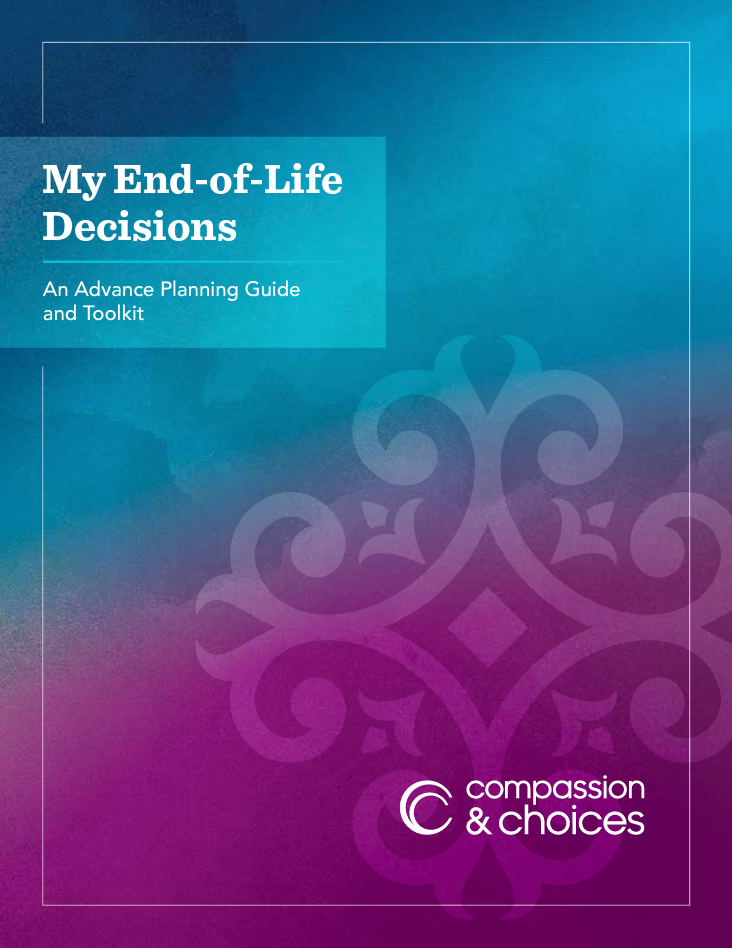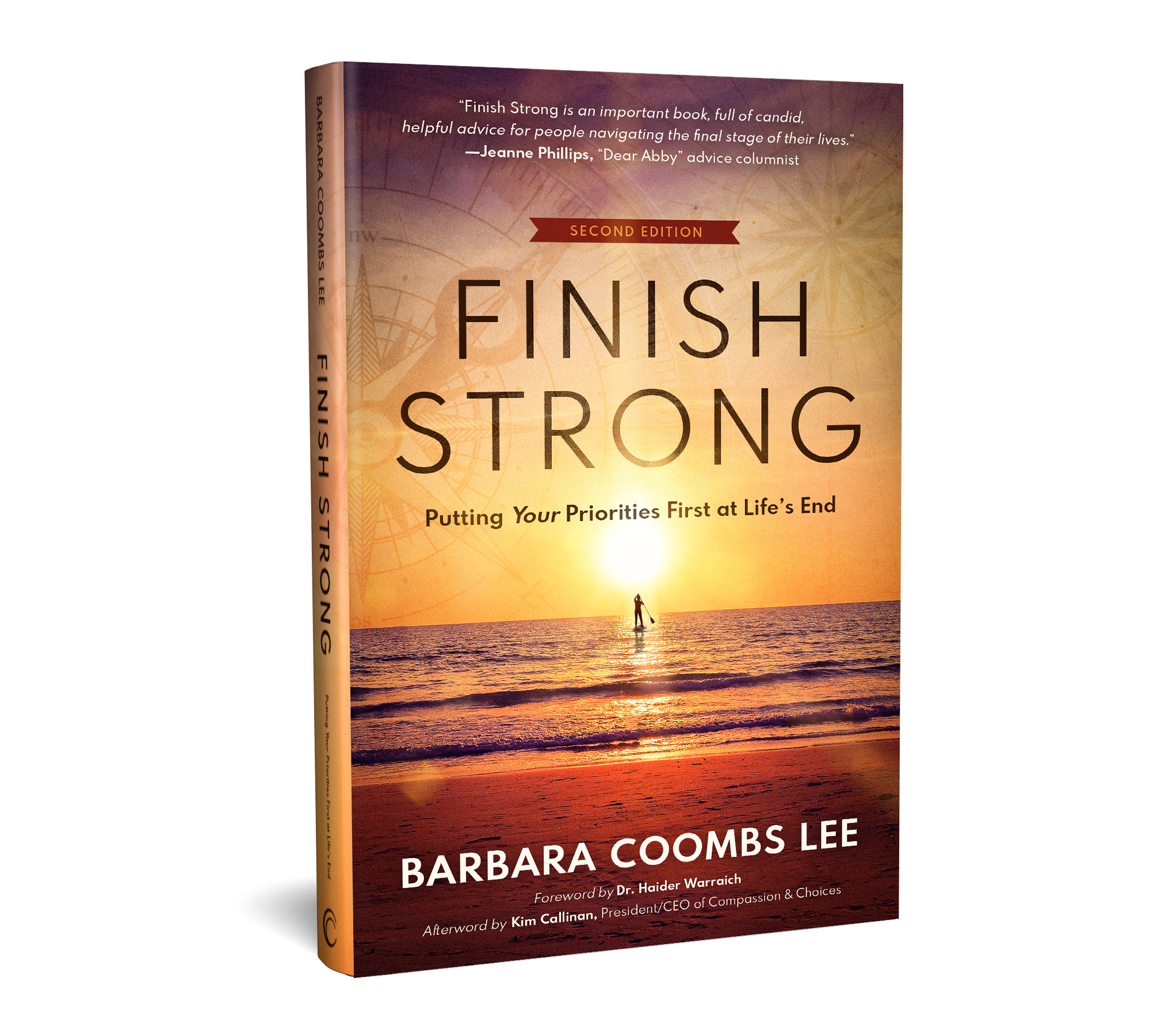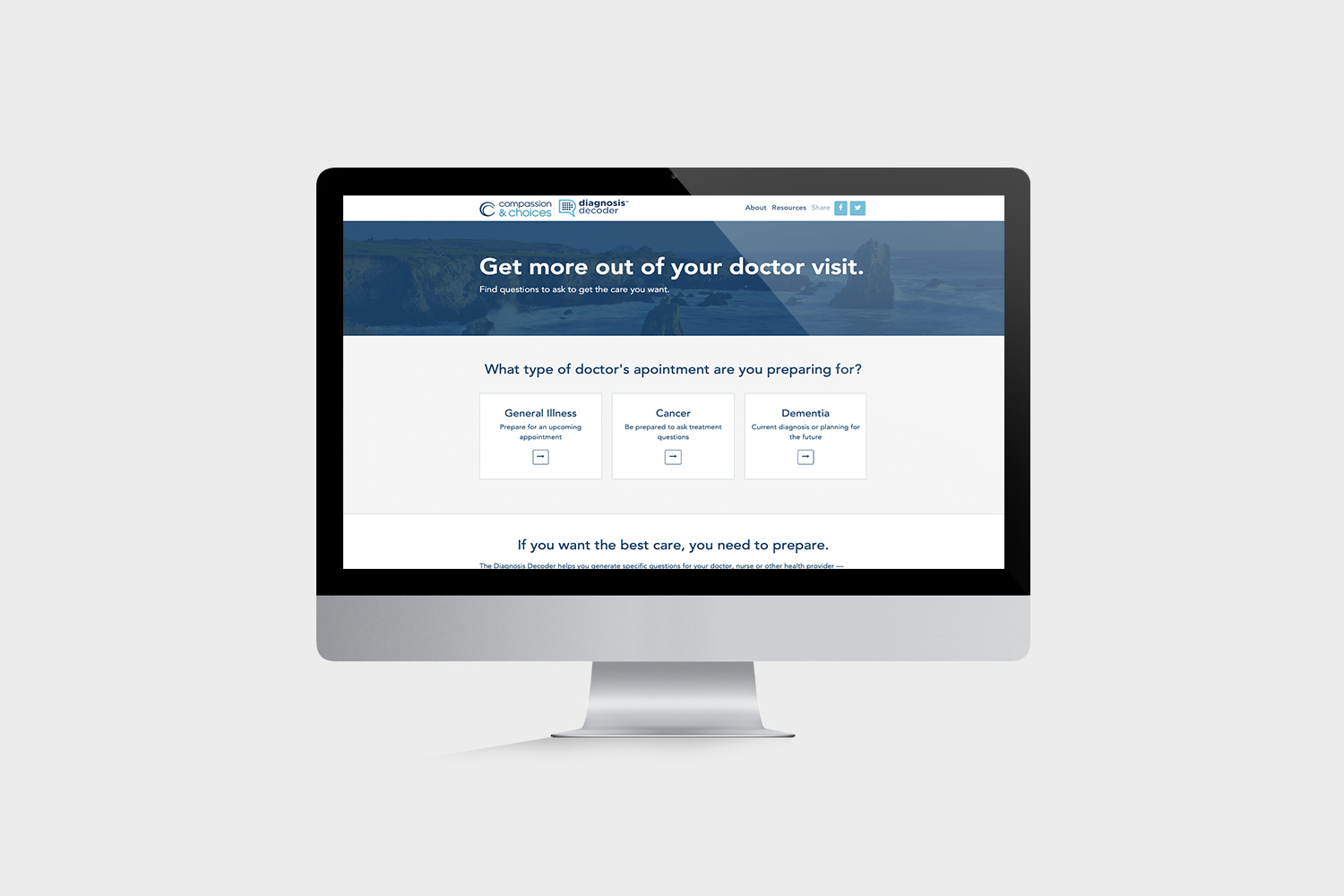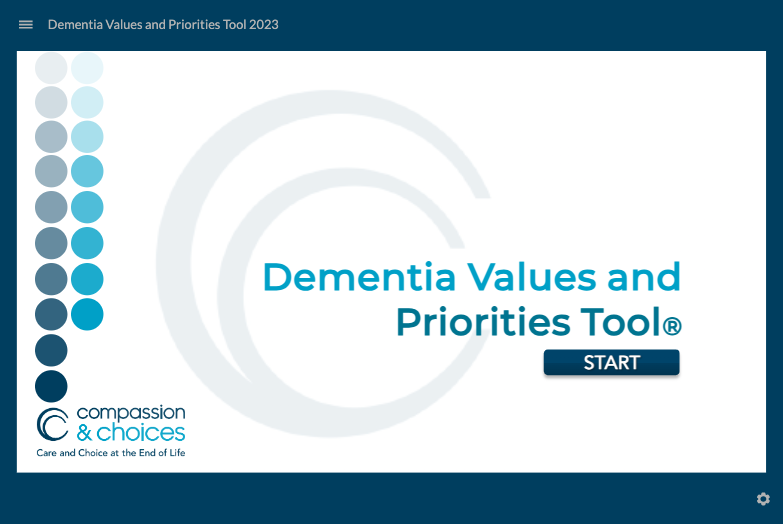Print and Online Resources
The End-of-Life Decisions Guide and Toolkit

Compassion & Choices’ My End-of-Life Decisions: An Advance Planning Guide and Toolkit will help you work through your end-of-life priorities and empower you to have valuable discussions with your healthcare providers. It includes tear-out sheets for advance care planning. The 40-page toolkit is available for download or a free hard copy can be ordered. Some of the unique and important features of this toolkit are:
- The Values Worksheet includes a series of questions that help you think through your priorities for care at life’s end.
- An Assisted-Living Facility Rider helps ensure that an assisted-living facility will respect a resident’s wishes for end-of-life care.
- A Hospital Visitation Form helps ensure that people you most want to be with you are admitted on a priority basis, whether or not they are family members.
- A Sectarian Healthcare Directive helps ensure that a patient’s instructions will be respected in a situation where institutional policy conflicts with those instructions and that, depending on state law, the provider will assist with the transfer.
- My Particular Wishes is meant to inform physicians, nurses or other care providers of your consent to or refusal of certain specific therapies. It also guides a family member or any other person you name in making decisions for you, if you cannot articulate these decisions yourself.
Dementia Values & Priorities Tool
Finish Strong | The Book

Finish Strong: Putting Your Priorities First at Life’s End, by President Emerita / Senior Adviser of Compassion & Choices, Barbara Coombs Lee, is the guide to achieving the positive end-of-life experience you want and deserve. Finish Strong is for those who know they should prepare for the end of life, but are unsure how to think and talk about it. The book aims to help you live true to your values and priorities as vigor wanes, and how to make sure your wishes are honored. This book describes concrete action to take in the here and now, to help live your best life to the end.
Clinician Conversation Toolkit
Studies show the single most powerful thing a person can do to improve the chance for gentle dying, is simply an courageously, talk about it with your clinicians. Our toolkit provides you with a step-by-step guide to finding clinicians who will support you in advance and during a serious diagnosis. This includes:
- Our simple Finding a Partner Doctor postcard, which provides you with a list of the questions to ask to ensure you and your provider are on the same page.
- Information about our Doc to Doc Consultation Program, a resource you can provide to your clinicians if they have questions about how to legally support your end-of-life wishes including information on medical aid in dying, voluntarily stopping eating and drinking, palliative sedation, and more.
- Links to our powerful diagnosis decoder, an easy-to-use online tool that helps you find the right questions to ask to get the care you want. This includes
a version for a person with any illness, as well as a customized version for those facing cancer or dementia.

Advanced Directive Forms
Find your state's advance directive at CaringInfo
Medical Aid in Dying Information Packets in Authorized States
State-specific booklets that provide step-by-step instructions for how to use the law, how to find a physician and what to consider when talking with your physician. Also see the Medical Aid in Dying tracking sheet






